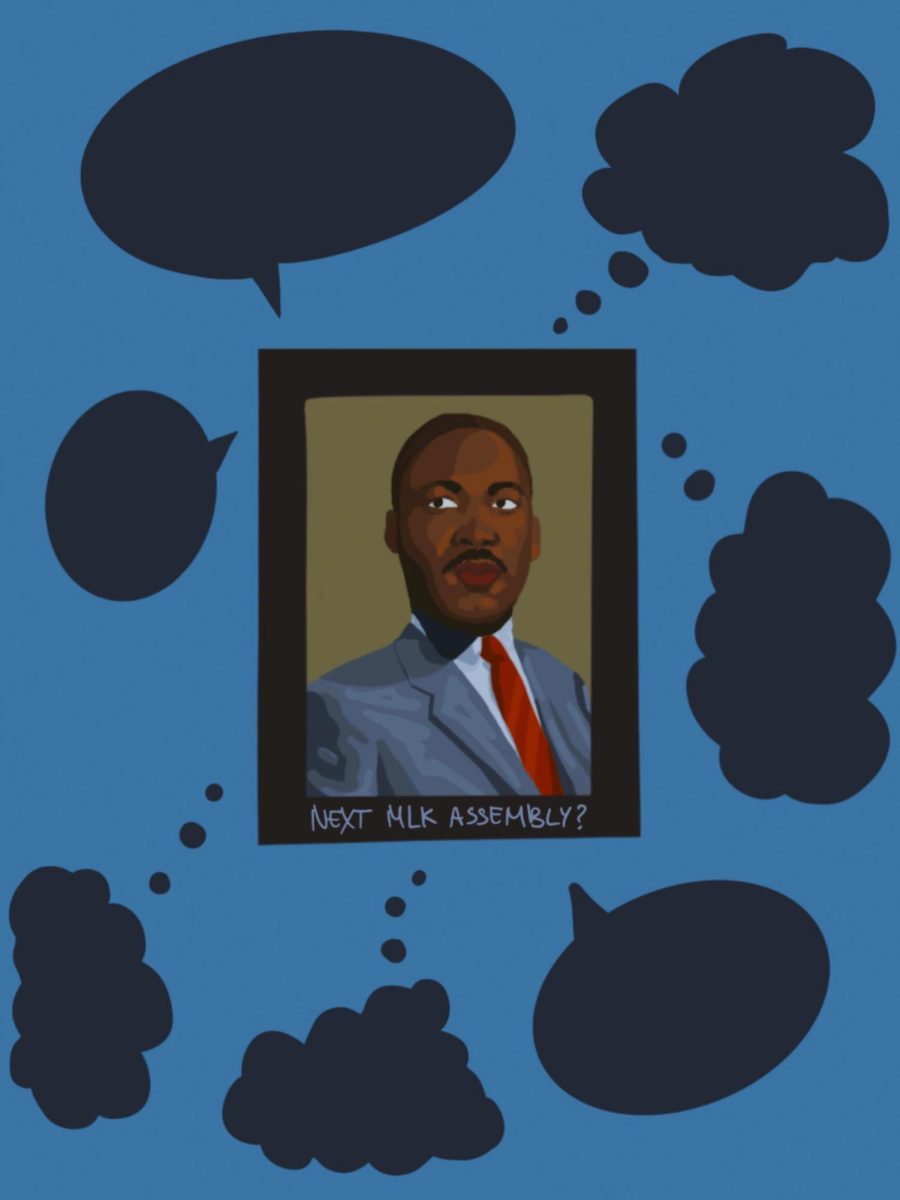For many years, the U-High community has honored the legacy of Dr. Martin Luther King Jr. in what feels like a familiar scene: students packed into the assembly hall listening to a presentation led by the Black Students’ Association. After the final lyric of “We Shall Overcome,” students leave the assembly and move on from discussions about racial inequality and social justice, ready to enjoy a Monday off from school.
A different tone was set last year when BSA members led a walkout to protest racial discrimination and bias at Lab. BSA has no intention of resuming subsequent assemblies until progress is made toward equality for Black students.
While the MLK assembly is a marker of tradition, it doesn’t represent the only way Dr. King’s legacy can be celebrated at Lab. BSA shouldn’t bear the burden of ensuring the school community comes together in January. At U-High, general DEI topics have been conflated with the MLK assembly, creating an environment where the core element of Dr. King’s work is lost.
Dr. King was about more than civil rights. Many don’t know that Dr. King commented on a variety of issues, drawing on the work of Mahatma Gandhi. He believed in the interconnectedness of society; one cause cannot be attributed to a single group. The complexity of all he represented cannot only be the ionic Washington Mall scene where he delivered his “I have a Dream” speech.
“All of this is simply to say that all life is interrelated. We are caught in an inescapable network of mutuality; tied in a single garment of destiny. Whatever affects one directly, affects all indirectly,” Dr. Martin Luther King Jr. said at an address entitled “The American Dream” at Lincoln University in Pennsylvania in 1961.
That being said, Dr. King is commonly regarded as the figurehead of civil rights across the United States. His nonviolent approach to social justice marked a wave of change. Because of his popularity, it’s not uncommon for students to conflate his legacy with the experiences and beliefs of all Black people. Dr. King doesn’t represent an entire population’s views or opinions.
Furthermore, conversations relating to diversity topics often don’t start themselves. Hosting an annual MLK assembly prompts the student body to reflect and discuss ways to improve our communities. This day of celebration serves as a meaningful reminder of the work that remains in the fight for social justice.
One day of service a year is not enough to truly improve our communities. Nor does learning about Black identity through a lens of suffering improve our culture. Black pride encompasses so much more than one Monday in January. An MLK assembly only serves as the jumping off point for meaningful discussion and reflection, but it all begins with understanding what Dr. King is truly about.
If we don’t take the time to understand Dr. King and his philosophy, how can the school community claim to hold a genuine assembly that reflects his legacy? The MLK assembly should challenge U-High to take the lessons of Dr. King and apply them to the challenges we face in the modern day. Regardless, with or without an assembly, the Lab community should work together to address discrimination, as pointed out by BSA last year.























































